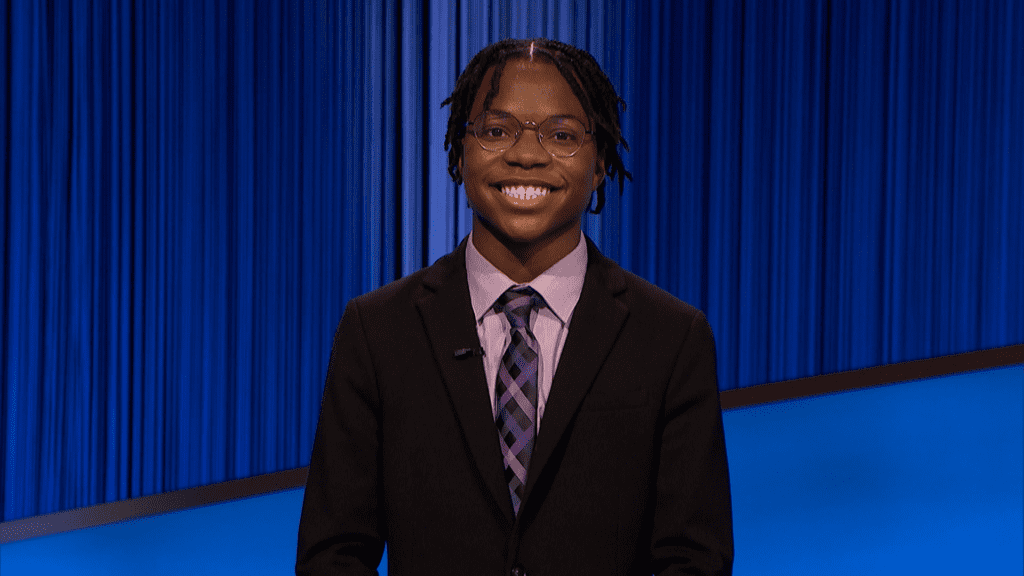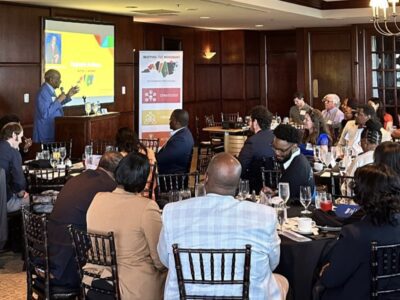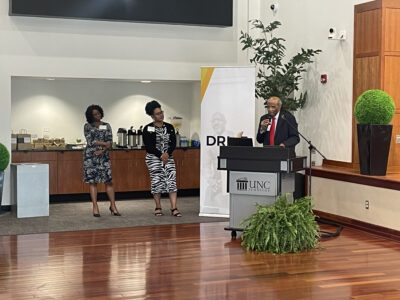|
|
Elected officials, legislators, government administrators, educators, and parents all weigh in on what education looks like in North Carolina. However, students are often missing from those conversations.
Having recognized the lack of student voice in decision-making, the Dudley Flood Center for Educational Equity and Opportunity (Flood Center) is helping students share their voices on issues of inequities in education in their communities. Their work over the past few years has culminated in a podcast where students can share their perspectives.
In 2021, on the heels of Covid, the killing of George Floyd, and other social and political tensions, the Flood Center hosted webinars to enable students and educators to discuss their experiences. After witnessing the value in these, the platform evolved into a fellowship program, bringing a cohort of students from across the state together to engage in various learning experiences and research projects. As part of the fellowship, students were able to present those research topics to local school board members at a conference hosted by the North Carolina School Board Association.
Since then, the Flood Center has launched a Students Voices podcast. Co-created with students, their fellows and other guests are invited to elaborate further about the importance of amplifying student voice in problem solving. Rotimi Kukoyi, a sophomore at UNC Chapel Hill and a Morehead-Cain Scholar majoring in health policy and management, has been brought on as the host of the podcast.
Kukoyi has been passionate about educational equity for years. While in high school in Alabama, he researched the link between achievement gaps and opportunity gaps in Alabama’s education system. Over two years, he built a TikTok following of over 40,000 as he shared resources pertaining to college access, including how to apply, writing essays, and finding formal mentors.

Notably, Kukoyi has made multiple appearances on the competitive television show, “Jeopardy!“. Interestingly, he draws comparisons between the core foundations in the show and his beliefs about reform and systems change, especially as it relates to encouraging student input.
According to Kukoyi, “Jeopardy!’s” structure differs from many other game shows in that it displays answers that contestants then must respond to in a question format.
“The idea of questioning things has always been ingrained in Jeopardy!”, he summarized, which is also something he feels has always been central to his beliefs and everything he has done.
“A lot of times you might think you have the answer, but a lot of people fail to even think about if they’re asking the right question first,” Kukoyi stated.
He goes on to say that much time and energy may be wasted on answers that aren’t effective in providing help for the designated group.
“If you go to the communities you’re trying to help, if you raise their voices, specifically students in this context, and you start asking them questions first and let them speak, that’s when you’ll find an effective solution.”
– Rotimi Kukoyi
Sandra Wilcox Conway, CEO of Conway and Associates and an advisory board member of the Public School Forum of North Carolina, says, “You have to not only invite people, but you have to give them the community and structure to support them using their voice. …We need truthful, courageous voices, and students are that.”
That is what the Flood Center’s associate director, Ashley Kazouh, states is the overarching goal of the podcast. When it comes to education, she understands that “when we as adults make decisions, students/youth are usually the ones who we are making those decisions for.”
Kazouh said the Flood Center’s “hope is essentially that students are able to use their voice (and) their experiences to help us create environments for them to thrive in, in educational spaces.”
Episode 1 features Flood Center’s Student Voices fellow, Jackson Bryant, a senior at Cumberland International Early College High School. The Flood Center’s Student Voices Podcast may be accessed here:
Additionally, the Flood Center is looking for a student to create the Student Voices podcast theme song. The selected theme song will be used as the intro and outro for the
podcast.
If you are a student and would love to share your talent by creating a theme song for the podcast, review the contest rules and submit your application and theme song by June 3rd. The Flood Center will announce the selection by June 30th.




